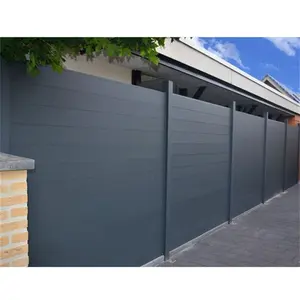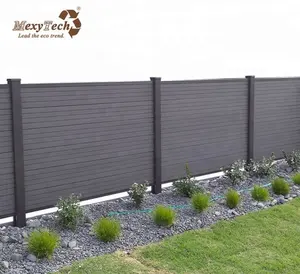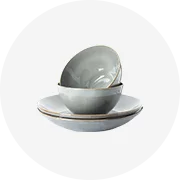
Aluminum Garden Fence Diy Modern Aluminium Metal Slat Anti Clim Boundary Wall Panels Aluminum Horizontal Fence


Powder Coated Aluminium Metal Fence Panels Post Outdoor Aluminium Slat Fence Garden Aluminum Privacy Fence




















Plastic fencing is a type of fencing made from plastic materials such as polyvinyl chloride (PVC), polyethylene (PE), or polypropylene (PP). It is commonly used in residential, commercial, and industrial applications due to its durability, low maintenance, and aesthetic appeal. Plastic fencing comes in a variety of styles, including picket fences, privacy fences, pool fences, and animal fences. It is also available in different colors and heights to suit various needs and preferences.
PVC privacy fence: A PVC privacy fence is designed to provide maximum privacy and security to the property. It is made up of vertical posts and horizontal rails that are connected by spaced pickets. The gaps between the pickets can be customized to suit people's privacy needs.
PVC picket fence: A PVC picket fence is a classic type of plastic fencing that adds a touch of elegance to the property. It is made up of vertical posts that are connected by horizontal rails and topped with pointed pickets. A PVC picket fence comes in a variety of styles, including traditional, contemporary, and whimsical designs.
Pool fence: Pool fences are specifically designed to keep children and pets safe around swimming pools. They are made up of vertical posts that are connected by horizontal rails and have a self-closing, self-latching gate. Pool fences are required by law in many states and must meet specific safety standards.
Agricultural plastic fencing: Agricultural plastic fencing is used to mark property lines, contain livestock, and protect crops. It is made up of high-tensile polypropylene or polyvinyl chloride (PVC) material that is resistant to weathering, pests, and chemicals. Agricultural fences come in a variety of styles, including woven wire, smooth wire, and electric wire.
Firstly, the PVC fence is highly durable and can withstand harsh weather conditions, including heavy rain, wind, and snow. It does not rot, rust, or corrode, making it a long-lasting investment. Secondly, unlike metal or wood fences, plastic fencing requires minimal maintenance. It does not need to be painted or stained, and it is resistant to termites, rot, and other pests. Plastic fencing also comes in a variety of colors, styles, and designs, making it an attractive option for the property. It can also be customized to match the surrounding landscape or architecture. In addition, a white plastic fence is a safe option for families with pets and children. It is non-toxic and does not contain any harmful chemicals that could pose a risk to their health. Finally, plastic fencing is a cost-effective solution for property owners. It is less expensive than metal or wood fences, and it requires minimal upkeep, saving money on repairs and replacements over time.